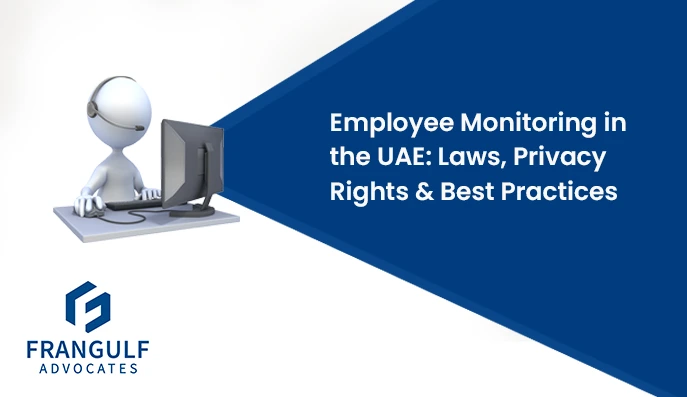Employee Monitoring in the UAE: Laws, Privacy Rights & Best Practices

Table of Contents
Monitoring employees in the UAE has become an increasing issue for both employers and employees, particularly with the expansion of remote work and the use of digital surveillance technologies. Although there are no explicit laws that specifically govern employee monitoring, employers are still obligated to adhere to general privacy laws and constitutional rights. Most importantly, employers must obtain employee consent before implementing any form of monitoring.
Is Employee Monitoring Legal in the UAE?
Yes—but with conditions.
The UAE does not have a specific law that addresses employee monitoring by itself. Instead, a range of laws and legal principles are applicable, mainly concentrating on privacy, consent, and data protection. While monitoring is permissible, it must be carried out legally, with the employee being informed and providing their consent.
Relevant Laws Governing Employee Monitoring
1. UAE Constitution – Article 31
Article 31 guarantees the confidentiality of communications and protects individuals from unwarranted interference. This constitutional right is the foundation of employee privacy in the UAE.
2. Cybercrime Law – Federal Decree-Law No. 34 of 2021
Replacing the earlier Federal Law No. 5 of 2012, this law criminalizes the unauthorized access, recording, or sharing of personal data, including workplace surveillance that invades an employee’s privacy without consent.
3. UAE Personal Data Protection Law (PDPL) – Federal Decree-Law No. 45 of 2021
The PDPL requires explicit, informed consent before processing any personal data. Monitoring activities that involve collecting data about an employee must comply with the principles of necessity, transparency, and purpose limitation.
Monitoring Company Email Systems
Company email accounts belong to the employer, and businesses hold the authority to oversee them. Nonetheless, employees should refrain from checking personal emails on work computers, as these could be monitored. Under UAE employee privacy regulations, companies are required to:
- Clearly notify employees about any monitoring of emails.
- Define policies for the professional use of corporate email systems.
- Refrain from accessing personal information without obtaining consent.
Best Practices for Implementing Employee Monitoring in the UAE
To comply with UAE privacy regulations and maintain employee trust, businesses should follow these best practices:
- Transparency: Clearly disclose all monitoring practices in writing.
- Written Consent: Obtain signed consent from employees before monitoring begins.
- Accessible Policies: Provide user-friendly handbooks and policies that explain monitoring guidelines.
- Privacy Balance: Respect employee privacy while protecting company assets.
- Legitimate Purpose: Ensure monitoring is based on valid business interests, such as cybersecurity, productivity, or data protection.
Guidance for Employees
Employees in the UAE possess clear constitutional and legal rights concerning privacy. Prior to utilizing company devices or signing employment contracts, we recommend that employees:
- Review and comprehend the company’s policies on employee monitoring and data protection.
- Seek clarification if the policies are unclear or excessively broad.
- Give informed consent only after receiving complete disclosure.
Final Thoughts
While there are no dedicated employee monitoring laws in the UAE, companies must align their monitoring strategies with the UAE Constitution and Cybercrime Law. By being transparent, obtaining consent, and having clear policies, employers can legally and ethically monitor workplace activities.
Facing a Legal Challenge? We’re Just One Call Away
Confidential, expert, and results-driven legal advice.








